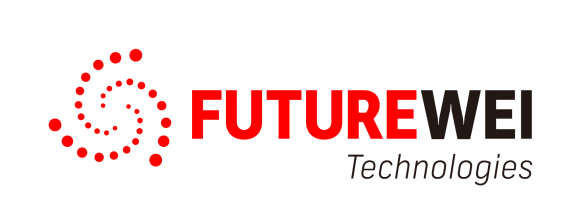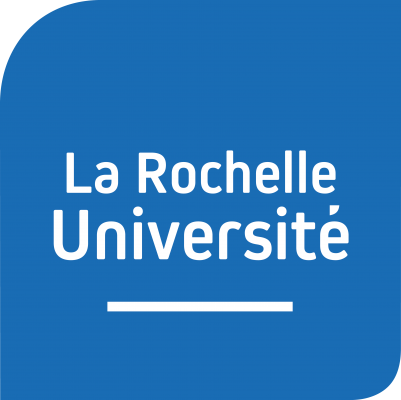Tuesday, May 18, 2021
Keynote 1 – Truly autonomous networking: an MNO's perspective
9:00 - 10:00 am
Pierre Imai, Rakuten, Japan
Session Chair: Christian Jacquenet, Orange Labs, France
Abstract
The concept of autonomous networks is quickly gaining traction in the telecommunications industry. Somewhat unusually, this trend is not so much driven by the suppliers as it is by the operators themselves. For it is us, operators who desperately need autonomous networks. In this talk, I will present why we, as a fully cloud-native MNO, require self-configuring, self-maintaining, self-optimizing, even self-evolving networks not in the far future, but now. I will first introduce the challenges we are facing and why traditional management approaches are insufficient to overcome them. Next, I will focus on what an autonomous network has to provide to address our needs and then, I will outline what open research questions need to be addressed before we even have a chance to ease the ever-increasing pressure we are being subjected to.
Biography
 Dr. Pierre Imai is Head of the Research & Innovation Department at Rakuten Mobile, Inc. and has been working for the Rakuten Institute of Technology as Principal Scientist since 2016. His research and work experience includes the fields of networking & telecommunications, self-optimizing & autonomous systems, internet-scale distributed systems, artificial intelligence & machine learning, and robotics. Before joining Rakuten, he was improving the content distribution and active network monitoring systems down to network protocol level at Google, working on future internet and telecommunications research at NEC Labs Europe, and participated in multiple EU and national research projects such as ANA and Onelab. He is especially interested in building systems that can learn and improve themselves, for example, a network stack that autonomously re-composes and re-configures itself to reach close-to-optimal performance based on the current state of the network and traffic — as he did for his PhD, on a research grant from the Swiss National Fund.
Dr. Pierre Imai is Head of the Research & Innovation Department at Rakuten Mobile, Inc. and has been working for the Rakuten Institute of Technology as Principal Scientist since 2016. His research and work experience includes the fields of networking & telecommunications, self-optimizing & autonomous systems, internet-scale distributed systems, artificial intelligence & machine learning, and robotics. Before joining Rakuten, he was improving the content distribution and active network monitoring systems down to network protocol level at Google, working on future internet and telecommunications research at NEC Labs Europe, and participated in multiple EU and national research projects such as ANA and Onelab. He is especially interested in building systems that can learn and improve themselves, for example, a network stack that autonomously re-composes and re-configures itself to reach close-to-optimal performance based on the current state of the network and traffic — as he did for his PhD, on a research grant from the Swiss National Fund.
Keynote 2 – AI-Based Cyber Defence: Two sides of the medal
13:45 - 14:45 pm
Gabi Dreo Rodosek, Research Institute CODE, Germany
Session Chair: Olivier Festor, University of Lorraine, France
Abstract
The complexity of the IT environments is increasingly with tremendous speed. Managing such complex IT environments in only possible with embracing the power of AI/ML approaches. For example, the processing of huge amounts of events and their prioritization are application areas for AI-based approaches. However, AI/ML can be used for both sides, either negative or positive and can be seen as two sides of the same medal. On one side the advantages of AI applications are enormous and can revolutionize any professional sector. On the other side using AI/ML is making easier for cyber criminals to penetrate systems. It is a race between attack and defence, and a clear asymmetry between the attacker and defender. The attacker needs to search only for one vulnerability whereas the defender needs to defend the whole systems with all vulnerabilities that he even does not know. The talk will first introduce the problem area we are facing today in the cybersecurity resp. security management area. Next, the potential of AI/ML approaches for cyber defence will be introduced. The talk will especially identify the research questions and areas that need to be approached as well as the challenges to face such as building trustworthy datasets for deep learning. Embracing the power of AI also gives a new push for developing self-*management approaches. A view on this topic will be given as well.
Biography
 Prof. Dr. Gabi Dreo Rodosek is the Executive Director of the Research Institute CODE (Cyber Defence), holds a Chair for Communication Systems and Network Security at the Bundeswehr University Munich, is the coordinator of the EU H2020 project CONCORDIA and has several supervisory and advisory mandates of various companies such as Giesecke+Devrient GmbH, BWI GmbH and Siltronic AG. She is furthermore a member of the WEF Global Future Council on Cybersecurity, member of the Digital Council of the Ministry of Defence, member of the Board of Directors of the Munich Security Network, member of the Cyber Security Advisory Council of Lufthansa, member of the Data Protection Advisory Council of the Deutsche Telekom. Prof. Dreo studied computer science at the University of Maribor, Slovenia, was awarded a PhD with summa cum laude in 1995 from the Ludwig-Maximilians University in Munich as well as a habilitation in 2002 from the Ludwig-Maximilians University in Munich. In 2016 she was awarded the European Medal from the Bavarian Minister for European Affairs and International Relations Dr. Beate Merk.
Prof. Dr. Gabi Dreo Rodosek is the Executive Director of the Research Institute CODE (Cyber Defence), holds a Chair for Communication Systems and Network Security at the Bundeswehr University Munich, is the coordinator of the EU H2020 project CONCORDIA and has several supervisory and advisory mandates of various companies such as Giesecke+Devrient GmbH, BWI GmbH and Siltronic AG. She is furthermore a member of the WEF Global Future Council on Cybersecurity, member of the Digital Council of the Ministry of Defence, member of the Board of Directors of the Munich Security Network, member of the Cyber Security Advisory Council of Lufthansa, member of the Data Protection Advisory Council of the Deutsche Telekom. Prof. Dreo studied computer science at the University of Maribor, Slovenia, was awarded a PhD with summa cum laude in 1995 from the Ludwig-Maximilians University in Munich as well as a habilitation in 2002 from the Ludwig-Maximilians University in Munich. In 2016 she was awarded the European Medal from the Bavarian Minister for European Affairs and International Relations Dr. Beate Merk.
Wednesday, May 19, 2021
Keynote 3 – The Road to Aware-Nets
13:45 - 14:45 pm
Diego R. Lopez, Telefonica I+D, Spain
Session Chair: Laurent Ciavaglia, Nokia Bell Labs, France
Abstract
While the introduction of closed-loop mechanisms is not such a radical change in network management, the use of data-driven techniques (analytics, AI…) will bring new ways of deriving further insights from behavioral data and improving network operation and management (OAM), and work to increase network self-awareness. The most delicate aspects to make data-driven network management a reality are not related to the analytics algorithms or AI models being applied, but with matters related to the network itself, and in particular:
- How the data and action flows are built and applied
- How the smart modules are placed and connected
- The trustworthiness of data sources and processors
- The interactions among humans and these smart modules
Biography
 Dr Diego R. Lopez joined Telefonica I+D in 2011 as a Senior Technology Expert and is currently in charge of the Technology Exploration activities within the GCTIO Unit. Before joining Telefónica he spent some years in the academic sector, dedicated to research on network services, and was appointed member of the High-Level Expert Group on Scientific Data Infrastructures by the European Commission.
Dr Diego R. Lopez joined Telefonica I+D in 2011 as a Senior Technology Expert and is currently in charge of the Technology Exploration activities within the GCTIO Unit. Before joining Telefónica he spent some years in the academic sector, dedicated to research on network services, and was appointed member of the High-Level Expert Group on Scientific Data Infrastructures by the European Commission.
Diego is currently focused on applied research in network infrastructures, with a special emphasis on virtualization, data-driven management, new architectures, and security. Diego chairs the ETSI ISG on Permissioned Distributed Ledgers and the Network Operator Council ETSI ISG on Network Function Virtualization.
Apart from this, Diego is a more than acceptable Iberian ham carver, and extremely fond of seeking and enjoying comics, and good discussions on any (in)appropriate matter.
More can be found at https://www.linkedin.com/in/dr2lopez/
Thursday, May 20, 2021
Keynote 4 – Practical Edge Computing for Mobile X Reality
9:00 - 10:00 pm
Pan Hui, HKUST, Hong Kong and University of Helsinki, Finland
Session Chair: Toufik Ahmed, Bordeaux INP, France
Abstract
Smartphone is now a necessity of people's daily life, and we are enjoying various services on it with numerous mobile applications. However, the resource and communication limitations of a single mobile device make it insufficient in satisfying the real-time and interactive constraints of some computation intensive applications, such as mobile Augmented Reality (AR) and mobile Virtual Reality (VR). To bridge the gap, we utilize the processing power of edge servers via task offloading and build practical mobile systems which significantly outperforms state-of-the-art mobile systems in terms of latency, scalability, quality of experience (QoE), and many other aspects.artphone is now a necessity of people's daily life, and we are enjoying various services on it with numerous mobile applications. However, the resource and communication limitations of a single mobile device make it insufficient in satisfying the real-time and interactive constraints of some computation intensive applications, such as mobile Augmented Reality (AR) and mobile Virtual Reality (VR). To bridge the gap, we utilize the processing power of edge servers via task offloading and build practical mobile systems which significantly outperforms state-of-the-art mobile systems in terms of latency, scalability, quality of experience (QoE), and many other aspects.
In the case of mobile Augmented Reality, large-scale object recognition is an essential but time-consuming task. To offload the object recognition task and enhance the system performance, we explore how the GPU and the multi-core architecture on the edge servers would accelerate the large-scale object recognition process. With the carefully designed offloading pipeline and edge acceleration, we are able to finish the whole AR pipeline within one camera frame interval while maintaining high recognition accuracy with large-scale datasets. In the case of mobile Virtual Reality, existing 360-degree video streaming systems are suffering from insufficient pixel density, as the video resolution falling within the user's field of view (FoV) is relatively low. We utilize the edge server for ultra-high resolution video transcoding and implement a system which streams tile-based viewport adaptive 360-degree videos onto the mobile client. With this edge proxy, we successfully achieve 16K 360 degree video streaming onto off-the-shelf smartphones, achieving high frame quality and fluent playback without overwhelming the processing capacity of the smartphones.
Biography
 Pan Hui is the Nokia Chair in Data Science at the University of Helsinki and the director of the HKUST-DT Systems and Media Lab at the Hong Kong University of Science and Technology. He is an International Fellow of the Royal Academy of Engineering, a Fellow of the Institute of Electrical and Electronics Engineers, a Member of the Academia Europaea, and a Distinguished Scientist of the Association for Computing Machinery. He received his PhD from the Computer Laboratory at University of Cambridge, and both his Bachelor and MPhil degrees from the University of Hong Kong. He was a senior research scientist and then a Distinguished Scientist for Telekom Innovation Laboratories (T-labs) Germany. His industrial profile also includes his research at Intel Research Cambridge and Thomson Research. His research has been generously sponsored by Nokia, Deutsche Telekom, Microsoft Research, and China Mobile. He has published more than 350 research papers and with over 20,000 citations. He has 30 granted and filed European and US patents in the areas of augmented reality, mobile computing, and data science. He has founded and chaired several IEEE/ACM conferences/workshops, and has served as track chair, area chair, senior program committee member, organising committee member, and program committee member of numerous top conferences including ACM WWW, ACM SIGCOMM, ACM Mobisys, ACM MobiCom, ACM CoNext, IEEE Infocom, IEEE ICNP, IEEE ICDCS, IJCAI, AAAI, and ICWSM. He was an Associate Editor for IEEE Transactions on Mobile Computing and IEEE Transactions on Cloud Computing, and a guest editor for various journals including IEEE Journal on Selected Areas in Communications (JSAC), IEEE Transactions on Secure and Dependable Computing, IEEE Communications Magazine, and ACM Transactions on Multimedia Computing, Communications, and Applications. He also served as a member of the IEEE Computer Society Fellow Evaluation Committee.
Pan Hui is the Nokia Chair in Data Science at the University of Helsinki and the director of the HKUST-DT Systems and Media Lab at the Hong Kong University of Science and Technology. He is an International Fellow of the Royal Academy of Engineering, a Fellow of the Institute of Electrical and Electronics Engineers, a Member of the Academia Europaea, and a Distinguished Scientist of the Association for Computing Machinery. He received his PhD from the Computer Laboratory at University of Cambridge, and both his Bachelor and MPhil degrees from the University of Hong Kong. He was a senior research scientist and then a Distinguished Scientist for Telekom Innovation Laboratories (T-labs) Germany. His industrial profile also includes his research at Intel Research Cambridge and Thomson Research. His research has been generously sponsored by Nokia, Deutsche Telekom, Microsoft Research, and China Mobile. He has published more than 350 research papers and with over 20,000 citations. He has 30 granted and filed European and US patents in the areas of augmented reality, mobile computing, and data science. He has founded and chaired several IEEE/ACM conferences/workshops, and has served as track chair, area chair, senior program committee member, organising committee member, and program committee member of numerous top conferences including ACM WWW, ACM SIGCOMM, ACM Mobisys, ACM MobiCom, ACM CoNext, IEEE Infocom, IEEE ICNP, IEEE ICDCS, IJCAI, AAAI, and ICWSM. He was an Associate Editor for IEEE Transactions on Mobile Computing and IEEE Transactions on Cloud Computing, and a guest editor for various journals including IEEE Journal on Selected Areas in Communications (JSAC), IEEE Transactions on Secure and Dependable Computing, IEEE Communications Magazine, and ACM Transactions on Multimedia Computing, Communications, and Applications. He also served as a member of the IEEE Computer Society Fellow Evaluation Committee.
Keynote 5 – From Connected Things to Connected Intelligence
13:45 - 14:45 pm
Mérouane Debbah, Huawei, France
Session Chair: To be provided
Abstract
The standardization for 5G wireless systems is maturing and researchers around the world have already started to look at beyond the 5G systems. Although the next G gossip is at a premature stage, this talk aims to provide an overview of the vision, challenges and key enabling technologies envisioned by the wireless community. The talk will mostly focus on the fundamental technologies and will discuss potential research directions to meet the requirements of next generation wireless systems.
Biography
 Mérouane Debbah (S’01–M’04–SM’08–F’15) received the M.Sc. and Ph.D. degrees from the École Normale Supérieure Paris-Saclay, France. He was with Motorola Labs, Saclay, France, from 1999 to 2002, and also with the Vienna Research Center for Telecommunications, Vienna, Austria, until 2003. From 2003 to 2007, he was an Assistant Professor with the Mobile Communications Department, Institut Eurecom, Sophia Antipolis, France. In 2007, he was appointed Full Professor at CentraleSupelec, Gif-sur-Yvette, France. From 2007 to 2014, he was the Director of the Alcatel-Lucent Chair on Flexible Radio. Since 2014, he has been Vice-President of the Huawei France Research Center. He is jointly the director of the Mathematical and Algorithmic Sciences Lab as well as the director of the Lagrange Mathematical and Computing Research Center. He has managed 8 EU projects and more than 24 national and international projects. His research interests lie in fundamental mathematics, algorithms, statistics, information, and communication sciences research. He is an IEEE Fellow, a WWRF Fellow, and a Membre émérite SEE. He was a recipient of the ERC Grant MORE (Advanced Mathematical Tools for Complex Network Engineering) from 2012 to 2017. He was a recipient of the Mario Boella Award in 2005, the IEEE Glavieux Prize Award in 2011, the Qualcomm Innovation Prize Award in 2012, the 2019 IEEE Radio Communications Committee Technical Recognition Award and the 2020 SEE Blondel Medal. He received more than 20 best paper awards, among which the 2007 IEEE GLOBECOM Best Paper Award, the Wi-Opt 2009 Best Paper Award, the 2010 Newcom++ Best Paper Award, the WUN CogCom Best Paper 2012 and 2013 Award, the 2014 WCNC Best Paper Award, the 2015 ICC Best Paper Award, the 2015 IEEE Communications Society Leonard G. Abraham Prize, the 2015 IEEE Communications Society Fred W. Ellersick Prize, the 2016 IEEE Communications Society Best Tutorial Paper Award, the 2016 European Wireless Best Paper Award, the 2017 Eurasip Best Paper Award, the 2018 IEEE Marconi Prize Paper Award, the 2019 IEEE Communications Society Young Author Best Paper Award and the Valuetools 2007, Valuetools 2008, CrownCom 2009, Valuetools 2012, SAM 2014, and 2017 IEEE Sweden VT-COM-IT Joint Chapter best student paper awards. He is an Associate Editor-in-Chief of the journal Random Matrix: Theory and Applications. He was an Associate Area Editor and Senior Area Editor of the IEEE TRANSACTIONS ON SIGNAL PROCESSING from 2011 to 2013 and from 2013 to 2014, respectively. From 2021 to 2022, he serves as an IEEE Signal Processing Society Distinguished Industry Speaker.
Mérouane Debbah (S’01–M’04–SM’08–F’15) received the M.Sc. and Ph.D. degrees from the École Normale Supérieure Paris-Saclay, France. He was with Motorola Labs, Saclay, France, from 1999 to 2002, and also with the Vienna Research Center for Telecommunications, Vienna, Austria, until 2003. From 2003 to 2007, he was an Assistant Professor with the Mobile Communications Department, Institut Eurecom, Sophia Antipolis, France. In 2007, he was appointed Full Professor at CentraleSupelec, Gif-sur-Yvette, France. From 2007 to 2014, he was the Director of the Alcatel-Lucent Chair on Flexible Radio. Since 2014, he has been Vice-President of the Huawei France Research Center. He is jointly the director of the Mathematical and Algorithmic Sciences Lab as well as the director of the Lagrange Mathematical and Computing Research Center. He has managed 8 EU projects and more than 24 national and international projects. His research interests lie in fundamental mathematics, algorithms, statistics, information, and communication sciences research. He is an IEEE Fellow, a WWRF Fellow, and a Membre émérite SEE. He was a recipient of the ERC Grant MORE (Advanced Mathematical Tools for Complex Network Engineering) from 2012 to 2017. He was a recipient of the Mario Boella Award in 2005, the IEEE Glavieux Prize Award in 2011, the Qualcomm Innovation Prize Award in 2012, the 2019 IEEE Radio Communications Committee Technical Recognition Award and the 2020 SEE Blondel Medal. He received more than 20 best paper awards, among which the 2007 IEEE GLOBECOM Best Paper Award, the Wi-Opt 2009 Best Paper Award, the 2010 Newcom++ Best Paper Award, the WUN CogCom Best Paper 2012 and 2013 Award, the 2014 WCNC Best Paper Award, the 2015 ICC Best Paper Award, the 2015 IEEE Communications Society Leonard G. Abraham Prize, the 2015 IEEE Communications Society Fred W. Ellersick Prize, the 2016 IEEE Communications Society Best Tutorial Paper Award, the 2016 European Wireless Best Paper Award, the 2017 Eurasip Best Paper Award, the 2018 IEEE Marconi Prize Paper Award, the 2019 IEEE Communications Society Young Author Best Paper Award and the Valuetools 2007, Valuetools 2008, CrownCom 2009, Valuetools 2012, SAM 2014, and 2017 IEEE Sweden VT-COM-IT Joint Chapter best student paper awards. He is an Associate Editor-in-Chief of the journal Random Matrix: Theory and Applications. He was an Associate Area Editor and Senior Area Editor of the IEEE TRANSACTIONS ON SIGNAL PROCESSING from 2011 to 2013 and from 2013 to 2014, respectively. From 2021 to 2022, he serves as an IEEE Signal Processing Society Distinguished Industry Speaker.








